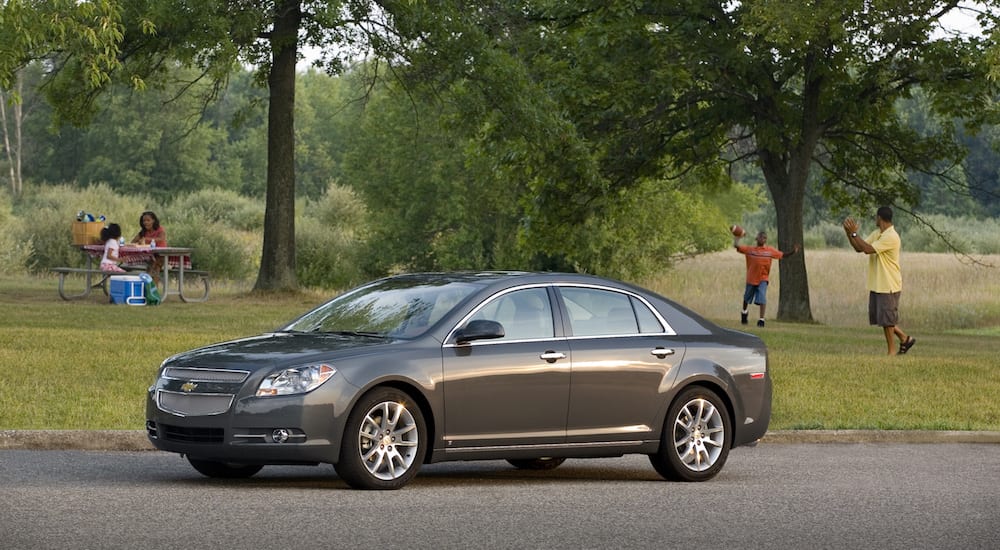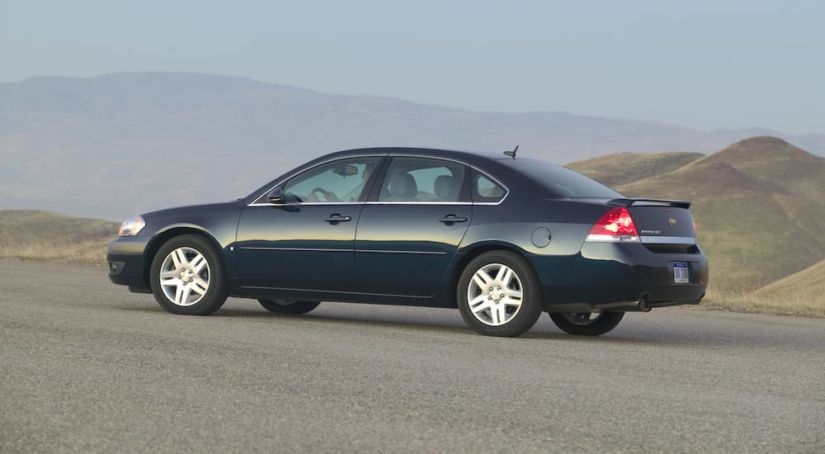Buying a car can be a fun, but stressful experience. If you want to buy a new car but don’t have the money in your budget to get the car of your dreams with the highest trim level, maybe you should consider used cars instead.
That new car that you’ve been dreaming about is not the best investment. Within the first three years, it will depreciate up to 50 percent in value. When you buy new, you invest a substantial amount of money into this vehicle but lose so much value due to the depreciation. When you get past the need for a new model and all the bells and whistles, you may begin to realize that used cars will add more value to your life—you’ll spend less money and still end up with a reliable vehicle. You may even be able to purchase a used car at a higher trim level that gives you the great safety and technology features that you were looking for with a new car. Consider some of the following tips to remember when buying used cars.
1. Remember Your Checklist
Checklists are important. They ensure that you won’t allow your excitement or nervousness about the process to distract you. If you are too distracted, you may miss something and end up buying a lemon instead of a reliable used car. DMV.org has created a comprehensive checklist to help used car buyers conduct their own basic inspections when checking out the vehicle that they want to purchase. Their checklist includes the following areas to inspect:
- Interior / Exterior
- Engine
- Tires
- Suspension
- Transmission
- Steering
Review their full checklist for more details. Don’t forget to look in the glove compartment so you see if the manual is there. There may be other information like instructions, or service and repair records.
One main step on the checklist is to take the vehicle for a test drive. It’s important for you to see how well the car handles in both city and highway driving. If possible, bring a friend with you who is a mechanic or has mechanical knowledge to complete a cursory inspection of the vehicle.
Make sure you bring a notepad with you to take notes or use an app on your phone. You will be excited and won’t remember everything later on when you are going over the pros and cons of buying this vehicle. You’ll want to record important information like the vehicle identification number (VIN) and mileage. You should bring a CD so you can test out the car stereo to make sure the system is functioning properly. Don’t forget a flashlight. You’ll need that for the inspection under the hood and for looking underneath the vehicle for any corrosion or leaks.
2. Take Your Time
You need to be in control of the situation. Don’t allow your stress to take over and rush through this inspection process. If the seller—whether a dealer or owner selling the vehicle—objects to your cursory inspection process, don’t proceed with buying the vehicle. You should not feel bad about inspecting the vehicle. This is going to be your car and you need to ensure that you are not getting a lemon. Don’t let the seller rush you through the process. If you find any minimal damage you can live with, like a scratch on the door or discoloration in the interior fabric, try to negotiate a lowered asking price.
3. Buy Certified Pre-Owned
If you think that purchasing a used car won’t be a reliable option, you should consider checking into a certified pre-owned option. Most car manufacturers offer a Certified Pre-Owned (CPO) program where customers can buy a used car that is reliable and gives you peace of mind.
Make sure you understand the differences between the CPO program offered by the car manufacturer and one provided by the dealership. You’ll benefit more from a program offered by the manufacturer since the packages are more comprehensive and the inspections are better. With CPO programs offered by the manufacturer, you will receive a warranty. Of course, the mileage and time coverage varies for each manufacturer. Not all dealerships will offer a CPO program with a warranty.
 4. Find Out the Market Value
4. Find Out the Market Value
Knowledge is power. Find out the current market value for the used car that you are interested in buying. You can use tools like this Instant Market Value tracker from Car Gurus to help you find this information. Tools like this one can analyze specific criteria that you input to provide you with an estimate of what you should be paying for the used car. These tools are helpful, so you don’t get stuck paying more for the used car than its current market value. It’s important to do your homework so you know that you are getting the best and most reliable used car at the right price.
5. Get the Vehicle History Report
Sometimes you need that extra bit of knowledge to help you decide whether or not to buy a specific used car. You may be wondering about the low selling price, how hard the vehicle was driven, or if there are any hidden mechanical issues.
You can visit the National Motor Vehicle Title Information System to check the history of the vehicle. This system was designed to help consumers stay protected from fraud when buying a used vehicle and to protect them from buying a stolen car. The NMVTIS provides customers with used car buying tips and a tool to help them understand what the NMVTIS vehicle history report means.
Some other websites you can check out are Carfax and AutoCheck. Both of these sites are for-profit businesses, unlike the NMVTIS, which is a non-profit run by the American Association of Motor Vehicle Administrators (AAMVA).
If you do not have the opportunity to get an independent mechanical inspection of the used car in question, you should definitely check out the vehicle history report. You will need the VIN for the vehicle in order to get the vehicle history report. Most for sale listings list the VIN in the information. However, if the listing doesn’t list the VIN, you can check near the windshield on the left side of the dash. However, it is suggested that you have an independent mechanical inspection completed on the used car if that is possible. You are only trying to protect yourself here and make sure that you end up with a reliable vehicle.
Just remember that you may not get all the information you want with this vehicle report. The third-party information compiled in the report only refers to the data that has been reported for the used car. If the previous owner did any repairs themselves, this won’t be reported.
Enjoy your used cars buying experience. With due diligence, you can find the perfect used car that is right for your current lifestyle and driving needs. Don’t forget your checklist and make sure you take your time. Buying a car; especially a used one, is an important process that should take your full attention. Do your homework and you will increase your chances of finding one of the best used cars that is reliable and ideal for you.



